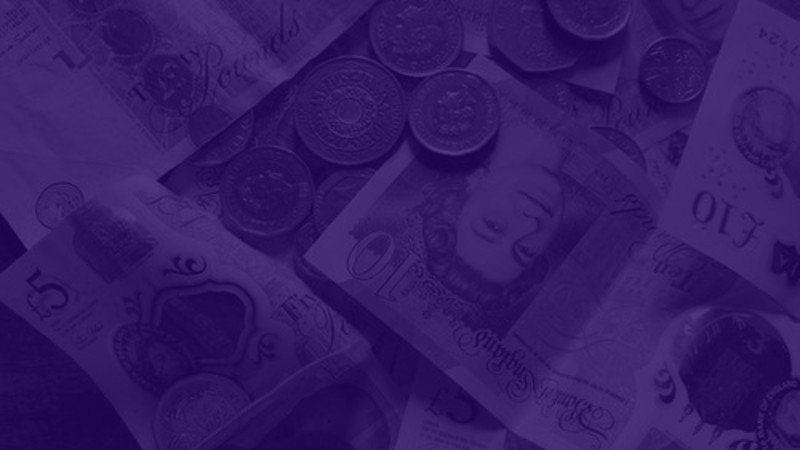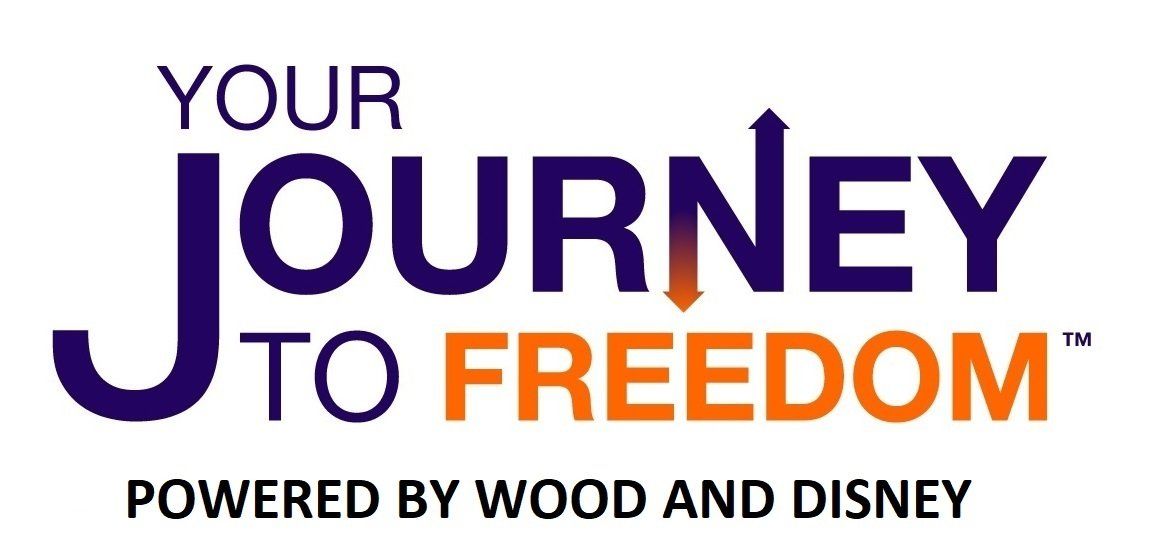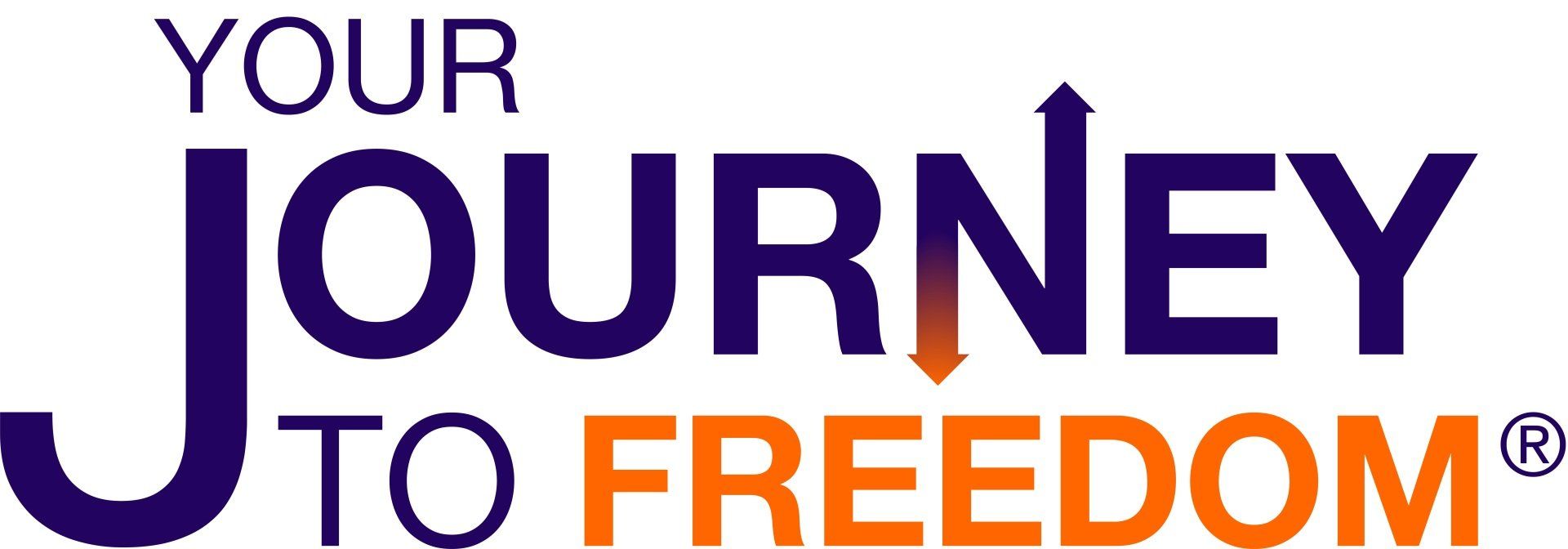BLOG
“The secret of getting ahead is getting started“
Mark Twain

In today's fast-paced, ever-changing world, it can be difficult to know who to trust when selecting a supplier. Social media has given rise to a world of noise, where anyone can post anything, and it can be challenging to know what is true and what is not. As a result, credibility has become more critical than ever when selecting any supplier. In this article, we discuss the importance of credibility, the challenges posed by social media noise, and how to identify credible suppliers. What does credibility actually mean? It encompasses sincerity, integrity, authenticity and reliability but fundamentally it is based upon trustworthiness and expertise. It is a combination of both emotion and logic. Credibility is a critical factor when selecting a supplier because it determines whether you can rely on them to deliver what they promise. Making the wrong choice can lead to delays, quality issues, and inevitably financial losses. For example, selecting a supplier based solely on their social media presence can be risky because social media noise can make it difficult to know what is genuine and what is not. In today's world, anyone can post anything on social media, and it can be challenging to separate the truth from the noise. As a result, businesses need to be cautious when using just social media to select suppliers. There was a recent news story about an accountant who had hundreds of 5 star reviews based upon getting massive tax refunds for their clients. It transpired that the refunds were fictitious and HMRC subsequently demanded the refunds back together with interest and penalties leaving those taxpayers with massive debts and long repayment terms. The accountant denied any responsibility and ignored any communications and requests for help. One way to ensure credibility is to look for reliable third-party evidence. For example, has the supplier won any industry awards or hold recognized professional qualifications or perhaps a referral from another professional you already know and trust? Independent endorsements by the supplier’s peers provide a level of reassurance not provided by online reviews. Formal qualifications not only provide evidence of expertise but also ensure adherence to standards of behaviour. The accountant mentioned above was not a chartered accountant and therefore not subject to the rigorous oversight of a professional body. Another way to ensure credibility is to research the supplier's track record including their length of experience. Whilst new suppliers may have recent technical skills learnt from college or university, they will lack the practical experience that comes from working with many clients over many years. For example, a more experienced accountant is likely to have seen a wider range of financial issues and developed a deeper understanding of the unique challenges businesses face especially in regard to surviving recessions. So, you ask how long a supplier has been in business, and what is their experience? This information can be found through online searches, industry publications, or by speaking with other businesses in your industry. Don’t forget to consider the supplier's financial stability. A supplier that is financially stable is more likely to have the resources to deliver on their promises. Consider their financial statements, credit reports, and any other relevant financial information to ensure they are financially sound. We often see advertisements claiming to be able to achieve amazing results yet when you check their own accounts at Companies House they are often insolvent. If they cannot get their own house in order how can they achieve those results for you. It is also important to evaluate the supplier's communication skills. Do they respond to your inquiries promptly and professionally? Do they communicate clearly and effectively? A supplier that is responsive and communicates well is more likely to be reliable and trustworthy. There is a lot of discussion over recent years that you should consider the supplier's values and ethics before doing business with them. Simon Sinek’s view is we don’t buy what a supplier sells, we buy why they sell it. We like to understand our supplier’s “purpose”. Whether you believe that or not asking questions about their culture, codes of conduct or ethical guidelines will ensure that you feel comfortable in dealing with them. So choosing a supplier that aligns with your values and ethics can help ensure a long-term, mutually beneficial relationship. Finally, it is important to evaluate the supplier's level of innovation. In today's rapidly changing business environment, it is crucial to choose a supplier that can adapt to changes and innovations quickly. Consider their investment in technology and R&D. In conclusion, credibility is essential when selecting a supplier, particularly today where social media noise can make it difficult to know who to trust. By looking for third-party endorsements, researching track record, evaluating financial stability, considering their values and ethics, and assessing their level of innovation, businesses can ensure they select a supplier that is reliable, trustworthy, and can deliver on their promises.

Life is about making choices. This is true about both your personal and business life. The decisions we make are usually governed by more than just about money; where and how you should “spend” your limited resources. Time, energy, feelings, values and beliefs all come into play. Choices are about "opportunity cost". Money, time, your energy, are all limited resources so consider carefully “What’s in it for me” for every element of your life.

In the UK only 27% of businesses survive for more than 10 years but most reasons given for business failure are preventable. Are you building your business for the future or taking as much as you can from it today? Business owners need a change of mindset, by delaying gratification in the short term and focus on building for the future ...

Pricing both accounting and advisory services is complicated because both people and their businesses are complicated. You are unique and the way you run your business is unique so it would be unfair of us to charge you a “standard price” unless you want a “standard” service but who defines a standard service? We are advocates of clear and transparent pricing and to achieve that we have a systematic (mathematical) approach to our calculations and do not use vague expressions like bronze, silver or gold services with “from” in front of various £xxx which we all know means it will cost you more than initially claimed. We price (yes we call it what it is rather than “your investment”) based upon the services you actually need, the precise service level you choose, and logical factors about your business such as size, number of staff, number of transactions and our clear and objective assessment as to the quality of your record keeping. One of the benefits of being a cloud accounting specialist is that we can really, very accurately, assess the quality of your record keeping, scoring you from very poor to awesome. Naturally, awesome bookkeeping will see significantly lower accountancy fees than very poor. We should point out that the only clients who score awesome are those with qualified accountants in charge of their accounts department. Most of our clients can achieve “good” or “very good”. We do have two grades above “awesome” but those are reserved for clients who either have us doing their bookkeeping or have us preparing their management reports which as you can understand means the annual statutory accounts are faster to complete because we have already dealt with any issues during the year. We do not want to deliver a basic accounts service. Known as basic “compliance” it is applicable if all you want is someone to file your accounts with HMRC and Companies House but then we are probably not the firm for you. We aim to provide a full finance support function to our clients enabling them to focus on their businesses yet have all the financial insights that will enable them to make better decisions. Better decisions will lead to greater success, more profits and more positive cash flow. Compliance services are historic. They show what you have done and are a basis for calculating your tax liability. Your history is fact and therefore the resultant tax liability is fact and cannot be changed retrospectively. Again, our clients want more than just to be told what their tax liability is at a point when they cannot do anything about it. Our services can therefore include tax planning both business and personal in advance so that you do have the opportunity to do something about them. Business owners will often tell us that they want business advice but have no idea what that means. Do you just need someone to answer your questions when you have them? A simple yes or no answer delivered by email? Well, a robot can do that. Or do you want real support and real advice from a human who has seen it and done it? Many accountants call themselves business advisers but when pressed they either cannot explain what they do or what they offer is an unstructured meeting with a vague outcome. Our business advisory service is a pragmatic, best practice process called Your Journey To Freedom® the result of decades of learning and experience by our directors. www.yj2f.co.uk You will notice that it is a registered trademark and is unique to wood and disney. To us business advisory is to strengthen your business to create a stable foundation from which to grow, to optimise your performance to ensure controlled progress and finally to transform your business so it is not dependent on you therefore giving you freedom . We do not claim to know everything and part of our system is to signpost our clients to appropriate experts and specialists depending on what they truly need at any particular time. We meet our clients at least quarterly, often monthly, to track progress, to make decisions and set new goals. We’re deeply committed to that. So, for our advisory program we will only work with clients who commit to a minimum of quarterly meetings with us. If you are an ambitious entrepreneur who wants to build a better future for yourself, your family or your community then contact us to arrange a discovery call. E: info@wood-disney.co.uk T: 01206 233170

Business owners need something more than a traditional cash forecast to build resilience into their business in the future. They need guidance today about what they should be putting aside in savings for the regular downturns that will inevitably happen in the future. As a business owner you have a responsibility towards the future success of your business and the safeguarding of your teams’ jobs in the future too. You can only do that if you strictly control your cash and target to grow your reserves...

Historically investors, financiers and of course accountants have viewed the holding of too much cash as inefficient, lowering the returns on assets (ROA) and increasing the cost of capital. Their attitude is that cash is just another asset which needs to be managed for maximum profitability, so cash represents money not being put to work . It has also been encouraged that when there is a booming economy borrowing helps a business to grow faster at the same time as interest rates are likely to be lower. However, when boom turns to recession this increased debt can spell big trouble. To understand efficient use of cash let us consider this idea that it can lower the return on assets by looking at a simple example. A business has £1m of net assets on its balance sheet of which £200,000 is in the bank. It makes a net profit after tax of £100,00 which includes £2,000 of interest. Overall, it is making a 10% return on its assets of which the interest received represents just 1% return on the cash. In theory by eliminating the cash the Return on Assets would be greater so let’s try it. The company distributes all the cash as a dividend to its shareholders reducing the net assets from £1m to £800,000. Its interest income would disappear leaving £98,000 of net profit after tax. £98,000 as a percentage of £800,000 is 12.25% so an improvement on its previous return of 22.5%. How does this fit with the idea that it is increasing the cost of capital? Well taking the same numbers as our ROA example we know that the business can generate 12.25% return on its net assets but its return on cash is only 1% so in effect the company is losing 11.25% on any cash it holds. This is known as the opportunity cost of cash . Obviously, no company wants zero cash because it needs money to pay its debts and trade successfully so what is the optimum amount of cash to hold? Again, finance people look to other ratios the most common being the liquidity and solvency ratios . Liquidity ratios monitor a company’s ability to pay its short-term liabilities whereas Solvency ratios look at a company’s ability to manage all of its debts including long term finance. The two main liquidity ratios used include the current ratio and the quick ratio . The current ratio is calculated from the following: Current ratio = current assets / current liabilities It is used to evaluate a company’s ability to pay its short term (current) debts from its short-term assets. Ideally it needs to be at least 1.0 but lenders often prefer to see 2.0 which means that the business could pay its creditors from realising only 50% of its current assets. Obviously, a score of less than 1.0 indicates that the business doesn’t have enough liquid assets to settle its liabilities. The quick ratio is calculated from the following: Quick ratio = current assets minus stock / current liabilities The q uick ratio is similar to the current ratio, but excludes needing to sell its stock to pay its liabilities. So again, a ratio of at least 1.0 is important. Two of the most popular solvency ratios include: debt to equity and debt to assets ratios . Debt to equity compares total liabilities to its total share capital and reserves. If the total liabilities are significantly higher than the equity (more than 2.0) it means the company is “highly leveraged” and therefore is at greater risk. Debt to assets compares total liabilities to its total assets. It shows the percentage of total assets being financed by creditors as opposed to being financed by its own equity. None of these in isolation conforms whether a company is holding enough cash, but it generates a conversation amongst the directors and its advisers and that is the important factor. So what are the benefits of retaining cash in your business? Let us assume the directors have agreed to increase their reserves and retain more cash to protect the future of their business (and their employees) despite doing so may make it look less efficient in the eyes of external financiers or investors, however there is still another potential problem. The impact of tax on retaining cash. I am not talking about a simple increase in tax because the money is not being spent because to be honest if you look at it logically it is like holding a 20 pence piece in one hand and a pound coin in the other. You need to spend the pound to save the 20 pence so unless spending that pound seriously benefits the business it is cheaper to pay the tax. No, it’s more serious than that. It is possible that holding too much cash can redefine a trading company into an investment company with the potential tax consequences for Capital Gains Tax and Inheritance Tax. There are even rumours that our Chancellor is considering taxing the shareholders of close companies (those with five or fewer shareholders) on their undistributed reserves (i.e., your cash) as if they had been voted out as dividends. This will not encourage businesses to be careful with their cash and save for the next rainy day. Please take note Mr Chancellor. Retaining cash to build financial resilience and stability Despite all of society’s pressure to spend rather than save, to avoid taxes and borrow rather than use our own money I think businesses will be looking to build their resilience and think more about safeguarding their futures. I foresee that in the future employees will be checking to see how financially stable their potential employer is, and customers will be looking at their suppliers' balance sheets more closely too especially when they may have been let down or lost money in the past by going for the cheapest option. Foregoing the greatest return on assets by deliberately holding multiple months of wages and directly strengthening reserves will actually be better for the long-term future of a business. Growth without considering Strategic Cash Retention will become foolhardy.

Do you recall back in December we were seeing people posting on social media... “will be glad when 2020 is over and looking forward to 2021”? Like somehow things were going to get better as if by magic on the 1st January. Even in December with the clearance of the first vaccine for use it was obvious that there was little chance of normality until at least the spring. This was confirmed on Monday evening when our Prime Minister announced a lockdown likely to last for at least seven weeks until the vaccines have a chance to protect the most vulnerable. As business owners we cannot afford to simply do nothing for that length of time and potentially a lot longer. It’s pretty obvious that we cannot expect our government to solve all of our problems and even if they could, not as quickly as we would like. As entrepreneurs and business owners we have always fought to create a better life for ourselves and our families and accept that we are generally unappreciated by our government for the jobs we create and the substantial taxes we pay. This has been further proven by the total lack of support in the last nine months for small company owners who remunerate themselves by using dividends. So, regardless of what’s going on in Government or in the world generally, we need to ignore what’s outside of our control, and instead focus on what’s within our control, which is.... what are we going to change in the way we do business to ensure that we not only survive but thrive? This starts with asking ourselves some questions. • What changes did Covid force you to make in 2020 which have actually benefitted your business? • Have you put into place new systems and processes to continue doing these great things? • How can you become even better and more valuable to your customers in 2021? • What opportunities are presenting themselves which you may have otherwise missed in the normal daily grind of work, but which have stood out because of Covid 19. • What would you have to do to double your revenue this year? (Think big and not just in terms of an inflationary increase). • What’s holding you back? And for this one you really need to be honest. Is it you? Do you need help? We created our business advisory program “ Your Journey To Freedom ” long before Covid struck with the objective of Building Better Futures for our clients. Using this philosophy, we now apply this program to help businesses which are facing difficulties because of what happened during 2020. In summary, there are three key steps to successfully navigating your journey to freedom. It starts with helping you to STRENGTHEN your business and personal finances by giving you a secure and stable foundation from which you can grow. We move to the second level where we help you to OPTIMISE your businesses to create a sustainable, resilient and growth focused future which is secure, under control and delivering consistent profits and cashflow. The final level helps you to TRANSFORM your businesses to ultimately not be dependent on you, but instead to have the team and systems in place to achieve your freedom. If you would like to know more about Your Journey To Freedom packages please contact us.

